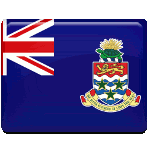Emancipation Day in the Cayman Islands Date in the current year: May 5, 2026
 Emancipation Day is observed in many former European colonies in the West Indies to commemorate the abolition of slavery and the emancipation of slaves. In the Cayman Islands, for example, it is a public holiday celebrated on May 5.
Emancipation Day is observed in many former European colonies in the West Indies to commemorate the abolition of slavery and the emancipation of slaves. In the Cayman Islands, for example, it is a public holiday celebrated on May 5.Now a self-governing British Overseas Territory in the Caribbean, the Cayman Islands were a British colony until the collapse of the colonial system. The islands were first sighted by Christopher Columbus in May 1503 during his fourth and final voyage to the Americas. Over the next century and a half, a variety of settlers, including pirates and deserters, eventually arrived in the archipelago.
England formally took control of the Cayman Islands and Jamaica with the Treaty of Madrid in 1670. However, the first permanent English settlement in the Cayman Islands was not established until about 50 years later due to conflicts with pirates. The English settlers brought with them African slaves. As a result, the majority of native Caymanians today are of mixed European (English, Scottish or Welsh) and African descent.
The slave period in the history of the Cayman Islands lasted for a century. During this time, Grand Cayman was the only island to have institutionalized slavery. At the time of emancipation, more than half of the population were slaves, outnumbering slave owners and non-enslaved people.
Slavery was abolished in the British Empire by the Slavery Abolition Act 1833, which received royal assent on August 28, 1833, and came into force on August 1, 1834. In practice, however, not all slaves were immediately freed. Caymanian slaves were emancipated on May 5, 1835, when Captain Anthony Pack, Colonel-in-Chief of the Cayman Islands Militia, read an emancipation proclamation to the assembled people of Bodden Town. At the time of emancipation, there were 950 slaves in the Cayman Islands, owned by 116 families.
Emancipation Day was first celebrated in the Cayman Islands in 1835. It was a public holiday for many years until the Legislative Assembly replaced it with Constitution Day in the 1960s. Discussions to reinstate Emancipation Day began in 2022. After a year of research by the Ministry of Youth, Sports, Culture and Heritage, it was decided to reinstate Emancipation Day to restore an important piece of history and preserve tradition.
The original plan was to replace Discovery Day, celebrated on the third Monday in May, with Emancipation Day, celebrated on May 5, beginning in May 2024. However, the Cayman Islands government ultimately decided to retain Discovery Day while adding Emancipation Day to the holiday calendar.
Emancipation Day usually falls during the annual Batabano Carnival with its colorful parades and parties. In 2025, for example, it coincided with J’ouvert, an early morning celebration that officially kicks off the carnival season. In addition to carnival-related events, Emancipation Day celebrations include special church services, heritage exhibits, traditional games, artisan fairs, food markets, fireworks, and other events and activities.
- Category
- Public Holidays
- Country
- Cayman Islands
- Tags
- Emancipation Day in the Cayman Islands, public holidays, holidays in the Cayman Island, emancipation of slaves, abolition of slavery